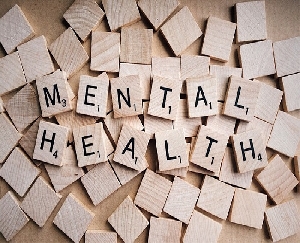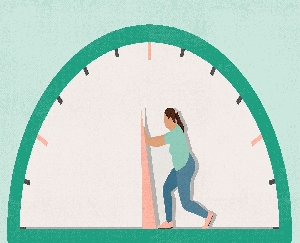
Healthy Child, Happy Family
A healthy child is not just a blessing; it's the cornerstone of a happy family.
In the whirlwind of parenting, nurturing a child's physical and emotional well-being can be a demanding task. However, the rewards are immeasurable. When you raise a healthy child, you're not just shaping their future; you're creating a nurturing environment that benefits the entire family.
The Importance of Teaching Children Basic Hygiene

Personal hygiene for a child means doing things to keep their body clean and healthy. Personal hygiene for a child is a set of some rules that encompass cleanliness, disease prevention, and the development of healthy habits. By instilling these practices at a young age, children can lay the foundation for a lifetime of good health and well-being.
Let’s explore why it is important to teach children basic hygienes
1. Disease Prevention
One of the primary purposes of basic hygiene is to prevent the spread of diseases. Children often come into contact with germs at school, during playdates, and in various public places. Teach them to wash their hands regularly, cover their mouth when they cough or sneeze, and reduce the risk of illness.
2. Self-Care and Independence
Teaching basic hygiene empowers children to take care of themselves. They learn to brush their teeth, bathe, and dress themselves, fostering a sense of independence and self-confidence. These practices help them in personal growth and development.
3. Social Skills
Good hygiene is fundamental to social interactions. A child who practices proper hygiene is more likely to be welcomed by peers in playgroups, school, and other social settings. It also instils in them a sense of responsibility and respect for others' well-being.
4. Physical Health
Basic hygiene practices, such as regular handwashing and dental care, directly impact a child's physical health. Clean hands and good oral hygiene reduce the risk of infections and dental issues.
5. Emotional Well-Being
Feeling clean and fresh contributes to a child's emotional well-being. It boosts their self-esteem and self-image, making them more comfortable in their own skin. Children who practice good hygiene are generally happier and more confident.
6. Lifelong Habits
By teaching basic hygiene early on, you're providing children with a strong foundation for a lifetime of good health practices. These habits become a natural part of their routine, ensuring that they continue to prioritize their well-being as they grow.
7. Academic Success
Good health and hygiene contribute to improved concentration and mental clarity. A child who is not preoccupied with discomfort or illness is better able to focus on their studies, leading to better academic performance.
Some Personal Hygiene Habits That Every Child Should Aware
Personal hygiene habits promote good health, prevent the spread of illnesses, and instill a sense of cleanliness and self-care in children. By teaching them these habits early on, we help them establish a foundation for a lifetime of good hygiene practices.
Such habits are -
-
Handwashing
Regular handwashing with soap and water helps prevent the spread of germs and diseases.
-
Brushing Teeth
Encourage children to brush their teeth twice a day to maintain oral hygiene and prevent cavities.
-
Bathing
Regular bathing helps keep the body clean, removes dirt, and prevents body odor.
-
Nail Care
Trimming nails regularly prevents dirt and bacteria from accumulating and reduces the risk of infections.
-
Hair Care
Teach children to wash their hair regularly to keep it clean and free from dirt and oil.
-
Proper Toilet Habits
Teach children to flush the toilet, wash their hands afterward, and maintain cleanliness in the bathroom.
-
Covering Mouth and Nose
Teach your child to cover their mouth and nose with a tissue when coughing or sneezing to not get affected by the spreading germs.
-
Safe Food Handling
Show them how to wash fruits and vegetables before eating, and explain the importance of cooking foods, especially meats and eggs, thoroughly to avoid foodborne illnesses.
-
Avoid Sharing Personal Items
Children should be aware that sharing personal items like toothbrushes, combs, or utensils can spread germs, and it's best to use their own belongings.
-
Cleaning Personal and Shared Spaces
Encourage children to help clean their personal spaces, like bedrooms, and participate in keeping common areas clean, such as living rooms and play areas.
-
Hygiene Products
Teach children about the proper use of hygiene products, such as soap, shampoo, deodorant, and menstrual hygiene products
-
Regular Check-ups
Stress the importance of regular medical and dental check-ups to monitor their health and catch any issues early.
Conclusion
Instilling healthy and hygienic habits in a child is a paramount responsibility for parents and caregivers. These habits not only contribute to a child's physical well-being but also play a vital role in their emotional and social development. By teaching children the importance of regular handwashing, proper dental care, bathing, and other essential hygiene practices, we are providing them with tools for a healthier, more comfortable, and confident life.

Dr. Monica Shrestha
Consultant General SurgeonJalandhar, Punjab, India







.jpg)














.jpg)
